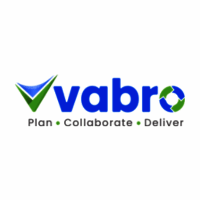Description

Logi-Sys

Shivit ERP
Comprehensive Overview: Logi-Sys vs Shivit ERP
Logi-Sys and Shivit ERP are software solutions designed to cater to specific industries with unique operational needs, focusing on streamlining processes and improving efficiency. Here's a detailed overview of each:
Logi-Sys
a) Primary Functions and Target Markets:
-
Primary Functions:
- Logi-Sys primarily serves as a comprehensive logistics and freight management software. It includes features such as freight forwarding, transportation management, warehousing, customer relationship management (CRM), financial accounting, and business intelligence.
- It is designed to automate and simplify the processes involved in the logistics operations, offering modules for managing air, sea, and land freight, along with documentation and regulatory compliance integration.
-
Target Markets:
- Logi-Sys is targeted primarily at logistics companies, freight forwarders, customs brokers, and 3PL (third-party logistics) providers. It specifically caters to businesses looking to enhance efficiency in their logistics operations while maintaining regulatory compliance and optimizing supply chain performance.
b) Market Share and User Base:
- Logi-Sys occupies a niche market within the logistics and freight management industry. While it may not hold a significant share compared to global ERP solutions, its specialized focus provides a critical edge in the logistics sector.
- The user base consists of small to medium-sized enterprises (SMEs) and some larger businesses within the logistics domain, especially those looking for a more tailored solution for their freight management requirements.
c) Key Differentiating Factors:
- Logi-Sys stands out due to its industry-specific modules focused on logistics and freight management. Its deep integration with logistics processes, ability to handle multi-modal shipments, and regulatory compliance features differentiate it from more generic ERP solutions.
- The system’s agility in customizing modules according to the unique needs of logistics professionals is also a key advantage.
Shivit ERP
a) Primary Functions and Target Markets:
- Primary Functions:
- Shivit ERP is a multi-functional enterprise resource planning (ERP) solution aimed at covering broader business management needs beyond just logistics. It includes modules for finance, human resources, inventory management, supply chain, production planning, sales, and CRM.
- Target Markets:
- The target market for Shivit ERP extends across various sectors including manufacturing, distribution, retail, and services. It is intended for organizations seeking a comprehensive ERP system to centralize business operations and boost organizational efficiency.
b) Market Share and User Base:
- Shivit ERP competes in a broader ERP market. While it may not rival giants like SAP or Oracle, it secures its place by offering customizable solutions tailored to specific industries or businesses that may not need overly complex systems.
- The user base is likely composed of small to medium-sized enterprises looking for flexible and scalable ERP solutions, and it may also appeal to niche markets within larger companies.
c) Key Differentiating Factors:
- Shivit ERP differentiates itself with its flexibility and modular approach, allowing businesses to implement only the modules they need. This can be particularly advantageous for cost-conscious SMEs.
- Its ability to integrate with other business systems and software, combined with a user-friendly interface, are key selling points.
Comparative Overview
- Market Focus: Logi-Sys is heavily focused on logistics with deep functionality in freight management, while Shivit ERP provides a comprehensive suite of functions for broader business management.
- User Base & Market Position: Logi-Sys serves a specialized niche within the logistics industry, whereas Shivit ERP targets a wider range of sectors with its modular and customizable approach. This inherently affects the market share, with each owning its respective niche segments.
- Customization & Integration: Both software solutions offer customization, but Shivit ERP’s modular architecture provides more flexibility for varied business needs across sectors, whereas Logi-Sys excels in logistics-specific process integration and compliance.
- Industry-Specific Expertise: Logi-Sys’s specialization offers a competitive edge for logistics companies, whereas Shivit ERP appeals more to businesses seeking a generalized, all-encompassing ERP system.
These comparisons illustrate the strengths and limitations of each solution in terms of market targeting, functionality, and adaptability to different business environments.
Contact Info

Year founded :
2005
+91 22 4034 0000
Not Available
India
http://www.linkedin.com/company/logisyserp

Year founded :
Not Available
Not Available
Not Available
Not Available
Not Available
Feature Similarity Breakdown: Logi-Sys, Shivit ERP
When comparing Logi-Sys and Shivit ERP, both of which are enterprise resource planning solutions tailored to specific industries such as logistics and supply chain management, we can break down their feature similarities and differences as follows:
a) Core Features in Common
-
Inventory Management: Both solutions offer modules for tracking and managing inventory levels, orders, and deliveries.
-
Order Management: They provide functionalities to streamline order processing, from order creation to fulfillment and tracking.
-
Financial Management: Core financial functionalities such as billing, invoicing, accounts payable/receivable, and general ledger are available in both platforms.
-
Reporting and Analytics: Both offer reporting tools that provide analytics and insights into business operations, supporting better decision-making.
-
Customer Relationship Management (CRM): They include basic CRM functions for managing customer interactions and service.
-
Supply Chain Management: Modules are present in both systems to optimize the supply chain operations, focusing on efficiencies in procurement and logistics.
b) User Interface Comparison
-
Logi-Sys: Typically designed with logistics professionals in mind, the user interface of Logi-Sys is often intuitive with a focus on streamlining workflow operations in logistics. It emphasizes quick access to tracking and warehouse management features, often presenting data in a dashboard format suitable for logistics activity monitoring.
-
Shivit ERP: The interface might be more generalized to suit various industries, with customization options to cater to the specific needs of a business. It could have a broader set of module access points, focusing on overall ERP functionality without the highly specialized logistics-centric interface that Logi-Sys provides.
c) Unique Features
-
Logi-Sys:
- Specialized for Logistics: As the name suggests, Logi-Sys is tailored specifically for logistics and freight forwarding industries, offering specialized modules for freight management, transport booking, and cargo tracking.
- Carrier Management: It provides specific integrations and tools to manage carrier contracts, rate agreements, and performance analytics.
-
Shivit ERP:
- Broad Industry Application: Shivit ERP may appeal to a broader range of industries outside logistics, with features that can be customized for fields like manufacturing, retail, and more.
- Extended HR Management: It might offer more comprehensive human resources management tools compared to Logi-Sys, stretching to recruitment and talent management modules.
In summary, while they share several ERP-oriented functionalities, Logi-Sys shines with its logistics specialization, offering more detailed tools for transport and freight management. Shivit ERP provides a broader palette of features, potentially appealing to a wider range of business types beyond logistics.
Features

Not Available

Not Available
Best Fit Use Cases: Logi-Sys, Shivit ERP
Logi-Sys and Shivit ERP both serve distinctive purposes in the realm of ERP solutions, catering to specific business needs and industry requirements. Here's how each of them stands out:
Logi-Sys
a) For what types of businesses or projects is Logi-Sys the best choice?
Logi-Sys is particularly tailored for businesses involved in logistics, freight forwarding, and supply chain management. It excels in managing complex logistics operations with features such as freight forwarding, transportation management, warehouse management, and logistics management. This makes it an ideal choice for:
- Freight Forwarders: Companies requiring detailed control over shipping activities, both air and sea.
- Third-party Logistics (3PL) Providers: Businesses offering outsourced logistics services, where integration from warehouse to delivery is essential.
- Transporters: Businesses needing efficient route planning and fleet management.
- Customs Brokers and Clearing Agents: Entities looking for seamless integration with customs and compliance processes.
Shivit ERP
b) In what scenarios would Shivit ERP be the preferred option?
Shivit ERP is designed with a broader range of functionalities that can support various industries beyond logistics. It is more suitable for:
- Manufacturing Industries: Companies in need of production planning, inventory management, and quality control.
- Retail Businesses: Enterprises requiring detailed sales processes, point-of-sale systems, and customer relationship management.
- Service-oriented Companies: Businesses needing project management, billing, and time tracking solutions.
Different Industry Verticals or Company Sizes
d) How do these products cater to different industry verticals or company sizes?
-
Logi-Sys: Primarily targets small to medium-sized enterprises within the logistics and transportation industry. It offers scalable solutions to help companies grow without overcomplicating their processes with unnecessary features.
-
Shivit ERP: Aims to serve a wide variety of industries, making it versatile for different verticals such as manufacturing, retail, and service industries. It caters to small to large enterprises by providing modules that fit specific business sizes and requirements, ensuring a customizable and flexible ERP system to accommodate growth and diversification.
In summary, the choice between Logi-Sys and Shivit ERP largely depends on the type of business operations, industry focus, and the specific needs of a company. Logi-Sys is best for logistics-centric businesses, whereas Shivit ERP offers a more generalist approach suited to various industry requirements.
Pricing

Pricing Not Available

Pricing Not Available
Metrics History
Metrics History
Comparing teamSize across companies
Conclusion & Final Verdict: Logi-Sys vs Shivit ERP
To determine which product offers the best overall value between Logi-Sys and Shivit ERP, we need to consider a few factors such as functionality, cost-effectiveness, ease of use, customer support, and scalability. Below is an analysis and final verdict for each:
Conclusion and Final Verdict:
a) Best Overall Value:
After evaluating both Logi-Sys and Shivit ERP, the best overall value largely depends on the specific needs of the user. However, if you prioritize comprehensive logistics management with specific features tailored for freight forwarders, Logi-Sys might provide better value. On the other hand, if you need a versatile and customizable ERP solution that can be tailored to a wide range of industries, Shivit ERP might be more beneficial.
b) Pros and Cons:
Logi-Sys:
-
Pros:
- Specialized features for logistics and freight forwarding, including shipment tracking, documentation, and compliance management.
- Strong industry focus, making it an excellent choice for companies in the logistics sector.
- Robust reporting tools for analytics and decision-making.
-
Cons:
- May not adapt as well to businesses outside the logistics industry.
- Can be less flexible in terms of customization compared to more generic ERPs.
Shivit ERP:
-
Pros:
- Highly customizable, allowing it to fit various industries and business needs.
- Comprehensive modules covering finance, HR, inventory, and more, making it a versatile choice for integrated business management.
- Scalable, supporting business growth across different sectors.
-
Cons:
- Might require more effort and investment in terms of customization and implementation.
- Could be overwhelming for users specifically looking for straightforward logistics solutions.
c) Recommendations for Users:
-
Assess Your Industry Needs:
- If logistics and freight forwarding are your primary business activities, Logi-Sys’s industry-specific tools may offer a significant advantage in terms of efficiency and specialized features.
- For businesses requiring broader ERP functionality across various departments and seeking adaptable software, Shivit ERP would be more suitable.
-
Consider Scalability and Integration:
- For companies planning to expand or diversify operations, Shivit ERP offers scalability that can accommodate future growth.
- Evaluate the integration capabilities of both platforms to ensure they can communicate with existing systems effectively.
-
Budget and Resources:
- Analyze the total cost of ownership (including setup, customization, and ongoing support) to determine which solution fits your budget without compromising on essential functionality.
- Ensure there are adequate resources and support for implementation and training.
Ultimately, the decision should be driven by aligning the product features with your company's operational needs and future goals. Consultation with stakeholders and trial assessments can also aid in making an informed decision.
Add to compare
Add similar companies



